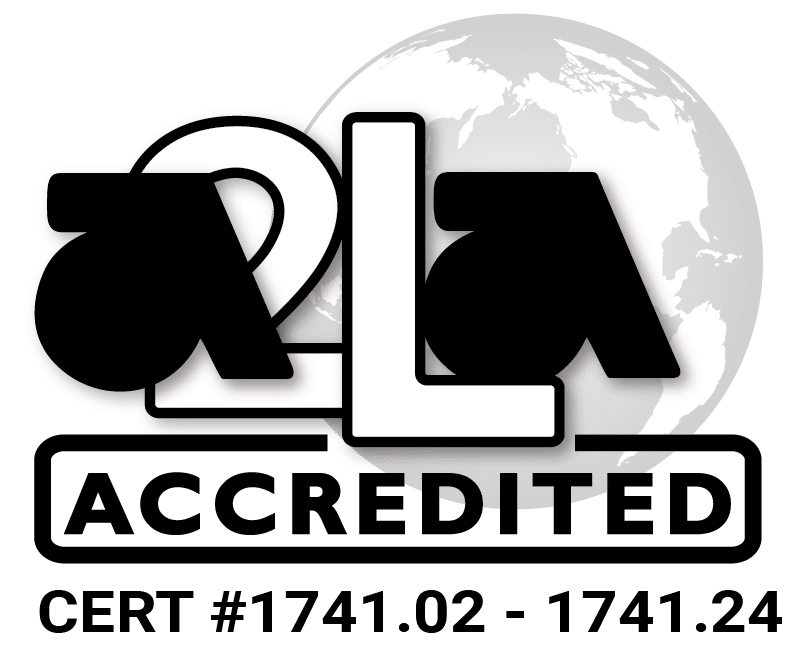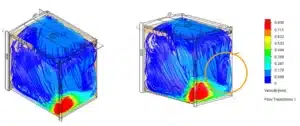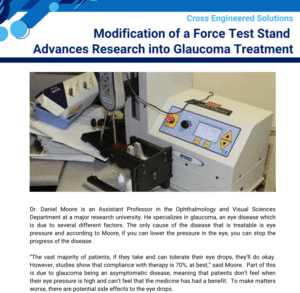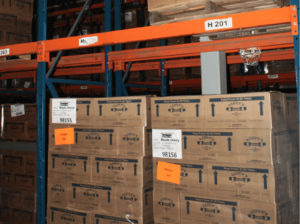Scale Accuracy Matters
Buying a scale for your industrial process involves more than just choosing a brand or style. There are many factors to consider when finding the right scale for your operation, here we’ll focus on Accuracy. Sure, it might be assumed that floor scale or bench scale has a different capacity than a precision balance, although even within each category or capacity of scale equipment, accuracies can vary quite a bit. For example, did you know balances can range from a readability of 1 g (precision balances) all the way out to 0.000001 g (analytical balances). That’s a lot of decimal places! Regardless of what capacity or readability you’ve got, here are some key considerations to understand about accuracy before purchasing a scale for your operation.
Importance of Accuracy
First, let’s back up and talk about why accuracy matters. Measurements are crucial for various industrial applications. Whether for shipping, laboratory processes, bulk materials weighing, or anything between, inaccurate scales can lead to significant errors and potentially severe consequences. This is especially true when it comes to bulk industrial processes or retail operations with legal for trade scales. A scale can be like a cash register for your business and even small increments can add up over time.
What is Accuracy?
To understand how it can affect your buying decision, let’s define accuracy and determine what to look for. Three terms that are often incorrectly used interchangeably are accuracy, precision, and resolution (or readability). Each focuses on a different aspect of the measurement itself.
- Accuracy: In terms of a scale, accuracy refers to the data’s “correctness”. This means that an accurate instrument would provide measurements closest to the actual value or standard.
- Precision: Indicates how consistently a scale provides the same reading for the same weight. For example, if an instrument were accurate but not precise, data collected using the device would hover close to the true value, but there would be disagreement between the individual readings.
- Resolution or Readability: Refers to the smallest increment a scale can display. Also referred to as the least significant digit or LSD. A readability of 0.1 grams means the scale can measure changes of 0.1 grams.
Further reading: We’ve got a great resource our experts have put together about the differences in Accuracy, Precision, and Resolution. Being on the same page when having discussions about scale accuracy can help our team make sure you have the best scale for your process.

Factors Affecting Accuracy
Several factors can affect a scale’s accuracy; including the environment, location, or what you plan to weigh.
- Environment: Temperature changes, drafts, and vibrations can influence measurements.
- Leveling: To maintain accurate results, scales should be placed on a flat, stable surface. An uneven surface can result in inaccurate readings. Learn more about slope’s impact on accurate weighing
- Cornerload: The precise force or weight exerted upon an individual corner of a scale that incorporates multiple load cells. What is Cornerload?
- Capacity: Exceeding the scale’s capacity can damage internal components like load cells and lead to inaccurate readings. What happens when you overload a scale? (This might be a good article to write)
Questions to Ask Before Buying
Before purchasing a scale, consider these questions:
- ⚙️ What will the scale be used for? Different applications require different levels of accuracy.
- ⚖️ What is the capacity and platform size you need? Make sure the scale can handle the maximum expected weight and that the platform is large enough for your items.
- 🌍 Where will it be Used? As discussed, different environments might require different features to maintain accuracy.
- 📏 What is the required readability? Ensure the scale can measure the smallest weight increments you need.
- 🛠️ Does the scale come with calibration features? Look for scales that can be easily calibrated, although here are some considerations before using the user or internal calibration feature on your device
- 🖥️ Do you need connectivity or data logging? Consider if the scale should connect to printers, PCs, or network systems (e.g., via USB, RS-232, Wi-Fi).
- 🧼 Does it need to be washable or waterproof? For food, pharma, or dusty environments, check if the scale meets IP ratings for washdown or ingress protection.
If you work with our team to get the best scale for your process, these are some of the important questions our team will ask. Knowing this information will help our team find the best scale for your process. Our goal is always to help our customers improve quality, raise efficiency, and lower risk. Starting with the right questions lays the foundation for a successful implementation.
Scale Types and Performance
For reference, below is a quick comparison of scale performance levels based on typical applications. When looking into where you’ll be needing scales in your process, in addition to scale accuracy, it’s a good idea to determine things like resolution and repeatability.
| Application | Resolution / Readability | Required Accuracy (lbs) | Required Accuracy (%) | Repeatability | Example of Usage |
| Shipping | 0.1–1 lb | ±0.1–1 lb | ±0.1–1% | ±0.1–0.5 lb | Parcel shipping, warehouse fulfillment |
| Batching/In-Line | 0.01–0.1 lb | ±0.01–0.1 lb | ±0.1–0.5% | ±0.01–0.05 lb | Ingredient dosing in food or chemical lines |
| Laboratory | 0.0001–0.01 lb | ±0.0001–0.01 lb | ±0.001–0.1% | ±0.0001–0.005 lb | Analytical testing, pharmaceutical compounding |
| Bulk/Overhead Crane | 1–10 lb | ±5–20 lb | ±0.5–2% | ±2–10 lb | Scrap metal weighing, raw material lifting |
| Truck/Rail | 10–50 lb | ±20–100 lb | ±0.1–1% | ±10–30 lb | Weigh stations, commercial freight tracking |
| Floor/Platform Scale | 0.5–2 lb | ±0.5–5 lb | ±0.1–0.5% | ±0.2–1 lb | Pallet weighing, warehouse inventory management |
| Livestock | 1–5 lb | ±2–10 lb | ±0.25–1% | ±1–5 lb | Weighing cattle or hogs for health/sale purposes |
| Tank/Hopper | 0.1–1 lb | ±0.1–2 lb | ±0.05–0.5% | ±0.05–0.2 lb | Continuous level monitoring, material usage tracking |
Help us help you! By understanding these factors, you can work with our precision measurement experts to make an informed decision and choose a scale that meets your accuracy needs. Reach out today and work with one of our team members to discuss your specific application. In addition to scales, we can take a look at your entire process and ensure you have the right precision measurement equipment to improve quality, raise efficiency, and lower risk.






